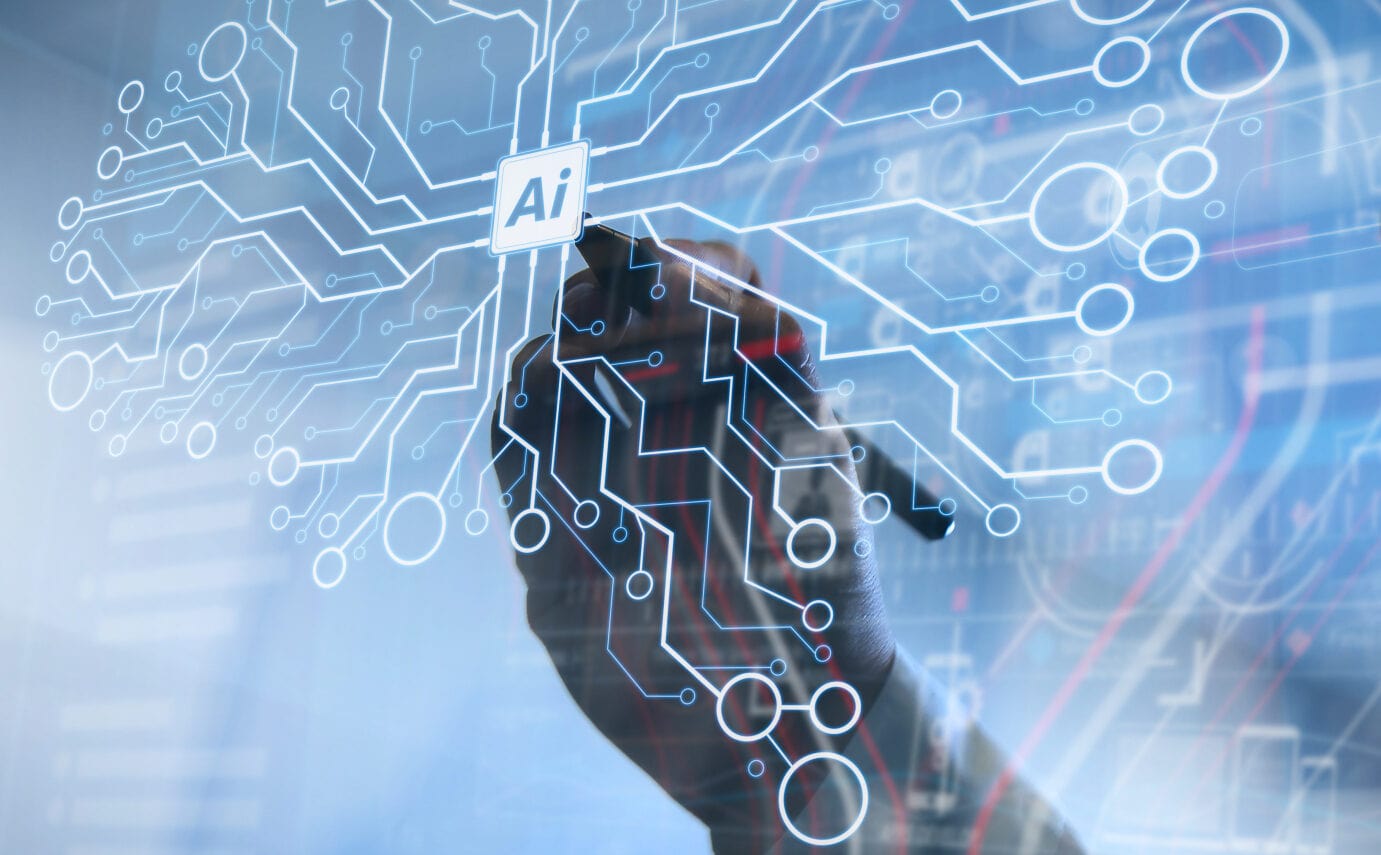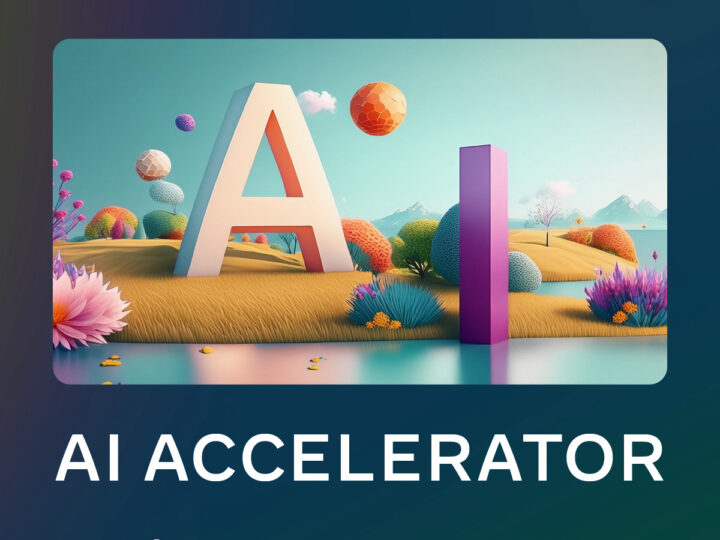Could artificial intelligence trigger an apocalypse and turn us into unemployed zombie slaves? Not likely.
Could AI help save the planet, diagnose diseases and feed a growing population? Already happening.
Still, is there anything to fear about AI? Yes.
“AI is a very powerful technology. We will see huge benefits coming out of it. We might see terrible things as well,” says Ziv Katzir, head of the National Program for AI at the Israel Innovation Authority.
“Technology is always neutral. It is up to us to make it positive or negative,” Katzir says.
A case in point: the Internet.
“Somewhere between 70 to 80 percent of all bits running over the cables of the Internet are associated with porn, drug trafficking, human trafficking… illegal stuff of all sorts. If you just count the bits, the Internet is a terrible place,” he points out.
“But does that mean it’s bad? Can you imagine your life without it? Without navigation apps, without all the things that happen on the Internet in health, transportation, education?”
And don’t forget journalism; ISRAEL21c wouldn’t exist without the Internet.
So far, we journalists have not (at least yet) been made obsolete by the generative AI bots, which believe it or not only entered the scene in November 2022.
No unemployment crisis
“There’s been a lot of talk about a global unemployment crisis with AI,” says Katzir, who has a doctorate in information systems engineering from Ben-Gurion University of the Negev.
“Those voices are now getting weaker as new inventions with AI are coming to light and we still have our jobs.”
“Even if the way most of us do our jobs is going to change, it doesn’t mean we are going to be obsolete.”
Every major technological revolution, he emphasizes, has actually led to an increase in employment.
“For sure, there will be some occupations that will die off because there are things we do today that can be automated. But we will for sure see new occupations coming to life. And even if the way most of us do our jobs is going to change, it doesn’t mean we are going to be obsolete.”
What AI already does well
AI is created by training a machine to use existing data as well as, or better than, people ever could, Katzir tells ISRAEL21c.
AI is already producing “magnificent results with image, text, audio and combinations of those three, which are the main channels that enable us to process data and take action,” he says.
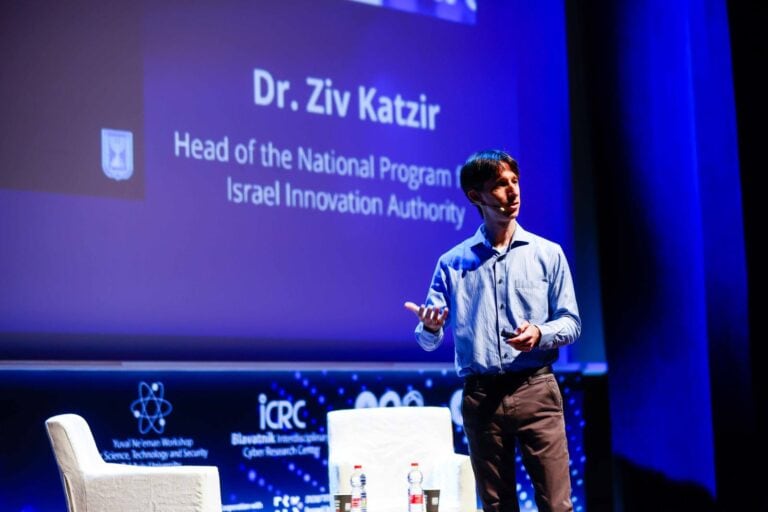
“Whenever we’ve got a well-defined problem and data to support this problem, AI is doing very well. A good example is when you’ve got a collection of images that describes places, shapes, people, animals, cancer tumors, cracks in bridges, or whatever.
“If someone labeled those pictures ‘this is a good thing,’ ‘this is a bad thing,’ ‘this is a desirable result’ or ‘this is an undesirable result,’ you can train the machine and it will very quickly do [the labeling] as well as, or better than, a person can do it.”
Healthcare, agriculture, construction, cybersecurity, fintech, transportation, recreation and other verticals are already benefiting from this capability of AI.
“There are several Israeli agritech companies selling ‘digital agronomist’ products based on AI,” Katzir says by way of example.
“They take high-resolution pictures of a field or a plant and decide whether it needs more or less fertilizer or water, when is the right time to use pesticides or pick the fruit. This has been done remarkably accurately. They can help get more yield out of the same land and reduce costs.
“In healthcare, we see medical devices using AI to assist in early detection of diseases and in personalized medicine. We see drug discovery and design being revolutionized by AI.”
The abysmally low success rate for a molecule to be turned into a drug, and the amount of time and money it takes to do that, has discouraged pharma companies from trying to develop treatments for all but the most economically profitable conditions, he says.
“Now that AI is kicking in, we can double or triple the success rate and that can change the entire economy of pharma. We can start seeing medicines for conditions that are not top-three only.”
What AI could do well
Other promising applications of AI are on the horizon.
“People are trying to use AI to detect PTSD, ADHD, stress and other psychological conditions from voice,” says Katzir.
“This is a very interesting channel but it still is in its infancy. There are huge challenges in privacy, ethics and in conducting the research itself. It’s going slowly.”
Another example is artificial general intelligence, or AGI.
“The thing that has driven AI research forward for the last 60 years or so is this dream of all-capable, all-intelligent machines that can do everything people can do: learn new tasks on their own and adapt and so on, like in science fiction,” says Katzir.
“We’ll probably see AGI in our lifetime, but it’s still far away.”
What AI can’t do
“No technology is capable of doing anything and everything,” says Katzir. “There are two basic things that AI will probably not do very well, ever.”
The first is managing classic information technology (IT) systems.
“We’ve got very good software solutions for that without AI. It doesn’t seem that AI is expected to replace those kinds of systems anytime soon, if at all. There is no need.”
The other basic thing that AI cannot do is to help us humans adapt to new situations in our lives – the challenges that we must learn to navigate, such as a new school or job, a difficult task, a relocation, a change in family status.
“Machines are very, very far from being able to do that,” says Katzir.
What could go wrong
Yet the possible uses of AI do include some things to worry about. Even OpenAI cofounders Sam Altman and Ilya Sutskever have warned that AI in the wrong hands could pose an existential threat to humanity.
Among the concerns are AI’s potential to create new diseases, spread hate via fake news and deepfake images, outsmart cybersecurity systems, and increase bias and discrimination – purposely or unintentionally.
Regarding the last example, Katzir asks us to imagine an AI system that assists Israelis in career decisions.
Since most Israeli educators are female and most Israeli high-tech workers are male, an AI model trained on employment history would probably make recommendations that perpetuate, or further entrench, this status quo without any nefarious intentions.
“I am not making any judgment on whether this is good or bad; it’s just how the process works.”
Israel’s role in AI
“I’d like to see AI being used to solve humanity’s biggest problems. I would like to see Israel playing a major part in these breakthroughs,” says Katzir.
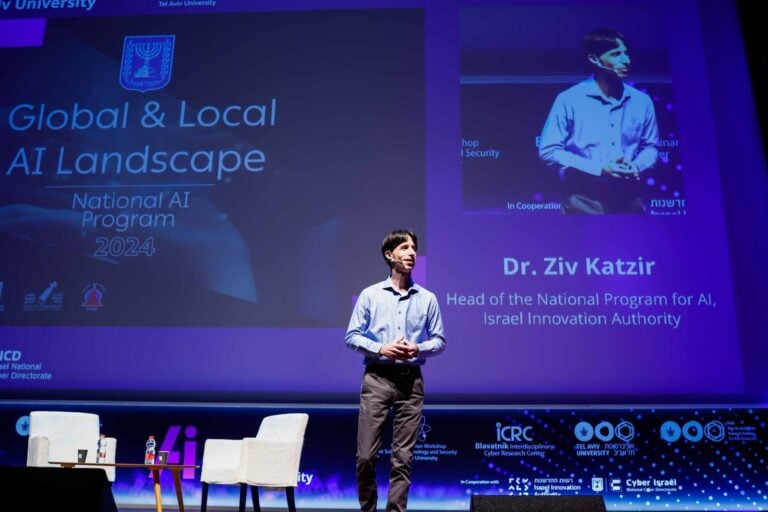
While the US, Canada, China and UK and other large countries are racing to gain AI dominance, says Katzir, approximately 2,200 Israeli companies are implementing AI in their products and services.
“We are already in the top 5 to 10 in the world, and in second place per capita. To maintain that lead, we need to run fast,” he says. “I would like to see a new burst of startups, to put AI into use in even more verticals. We want to be the innovators.”
Accordingly, in the last three years the National Program for AI budget was increased to a billion shekels and its timeline to six years from three years, Katzir announced at AI Day at Tel Aviv University on February 5.
“We are living in the midst of a technological revolution and it’s moving fast. We have to be nimble and change course if what we plan today won’t be relevant in three years. Our academic advisory board, led by Prof. Yoav Shoham, provides that compass.”
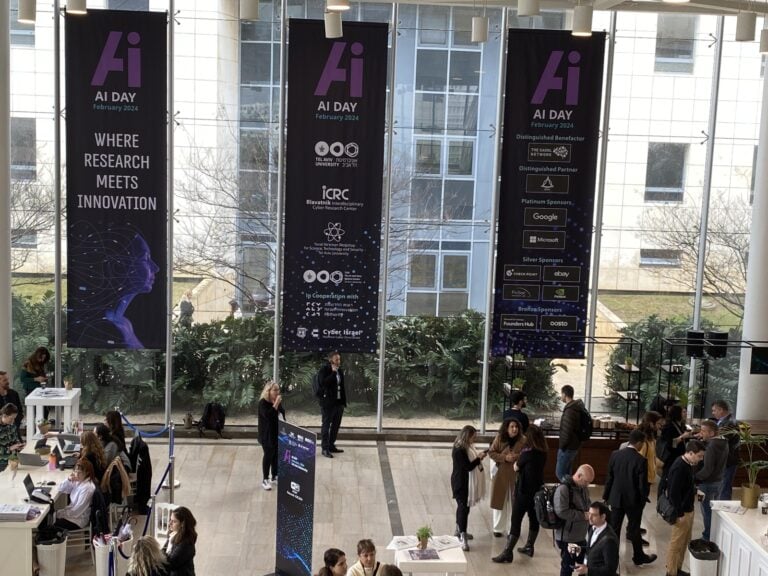
His team is working with government ministries and agencies to formulate long-term AI policies; invest in AI computing and data infrastructure; implement AI testing in public, private and academic sectors; promote AI talent in all sectors; support research excellence; and address ethical-use considerations.
“We completed two rounds of research scholarships — master’s, PhD and postdoc — and launched six projects that will train 500 experts in AI for the private sector,” Katzir said. “We recently closed a call for proposals for implementing AI in the public sector and received 33 submissions from a long list of government ministries and agencies.”
Katzir admits his national goals for AI seemed unimportant to him in the immediate aftermath of the shattering events of October 7.
“But then I realized that there will be a day after. And in that day after, we need to make sure we have a strong country and strong economy. We need to strengthen our work in AI to create that future.”




